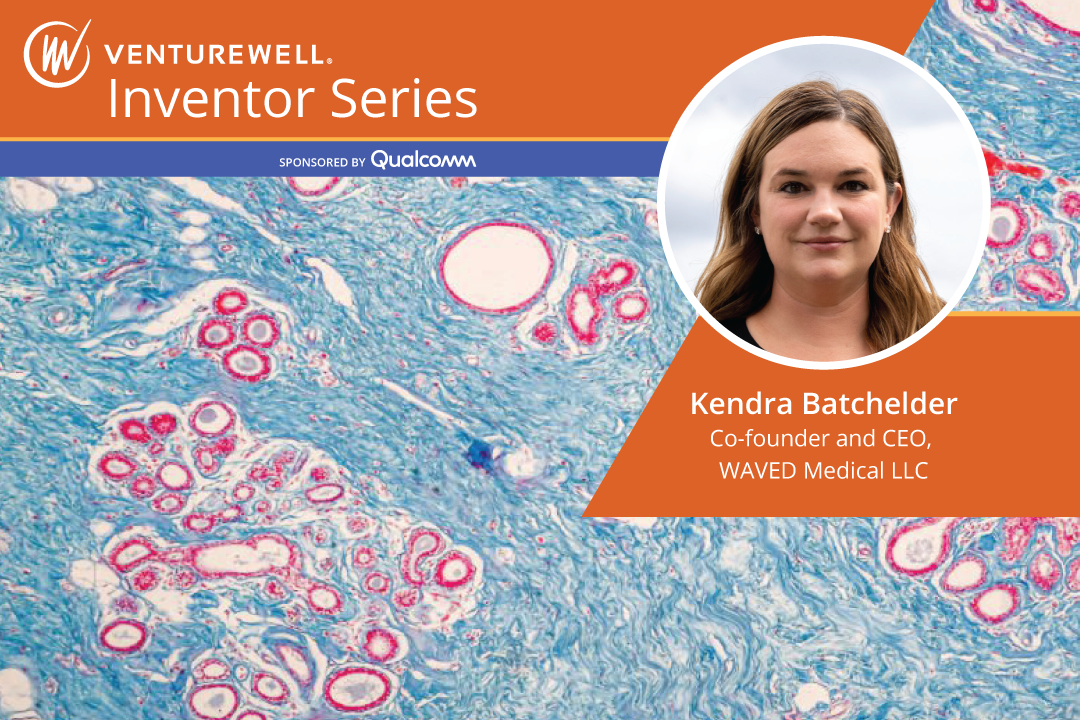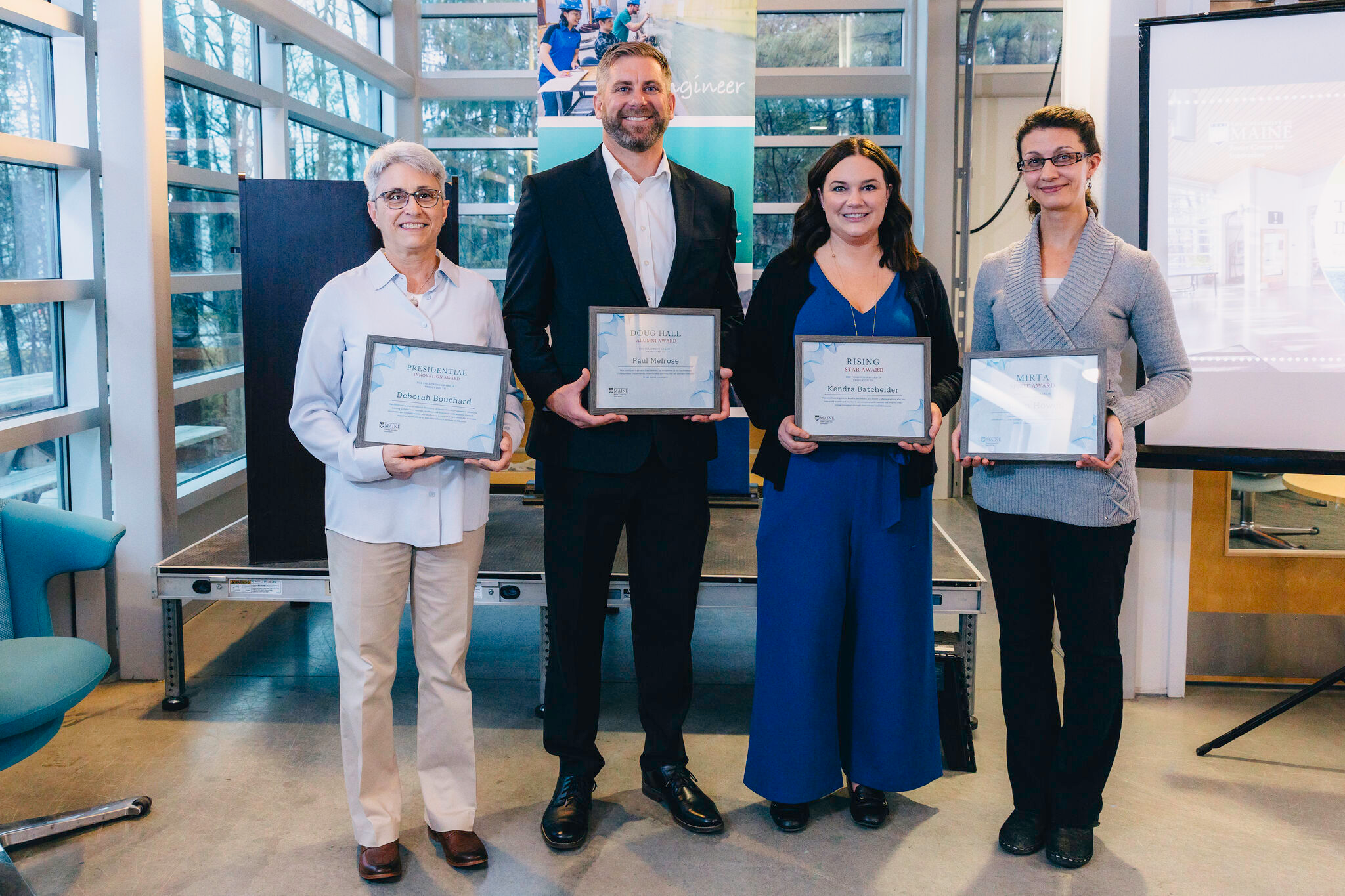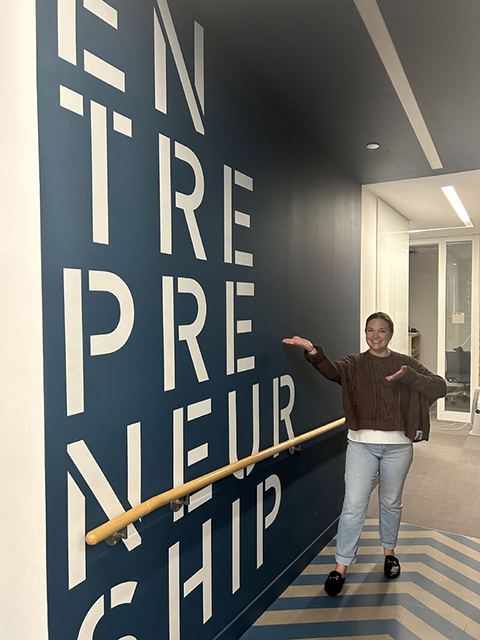
Making Mammograms More Informative
For some, getting an annual mammogram is easy. For others, it’s not, and the effects can be deadly. Each year, over 42,000 people die of breast cancer, and for those with dense breasts, it can be more difficult to detect cancer on mammograms. Kendra Batchelder, co-founder of WAVED Medical, wants to change this grim statistic—and she’s backed by the U.S. Food and Drug Administration (FDA), which recently amended regulations to require more information be provided about breast density after every mammogram.
Batchelder was initially inspired to pursue breast cancer research because of a personal loss. Just as she was starting her doctoral program in computational biomedicine, her husband’s grandmother lost her battle with breast cancer.
As a student, Batchelder worked with her mentor, a radiologist, at the local hospital. One day, they met a patient who showed Batchelder another side of the fight against breast cancer: the challenge of accessing mammograms. This patient was recalled to the breast care center after an abnormality was detected in her breast tissue. Batchelder and her mentor had to deliver the news: They had detected cancer in the scans. During the conversation, the patient talked about her trip to the hospital. She made a two-hour drive, by herself, because this hospital was the only place she could receive breast health care in the region.
This woman drove four hours round trip to get her mammogram every year. Some years it was hard to find the time. Now she would be making the trip more often, to try to cure her cancer.
Batchelder learned that this patient’s experience was not an isolated incident. “The time it takes to get to the hospital is one of the main reasons why women don’t comply with their annual exams,” Batchelder says. “And when 50% of breast cancer patients don’t have a known identifiable risk factor, that’s a huge problem.” According to the World Health Organization, most people with breast cancer do not experience any symptoms during the early stages. So how can patients determine their risk factor—especially when most women who are diagnosed with breast cancer have no known family history of the disease?
“It made me want to provide patients with information about their risk,” Batchelder says. She surmised that providing individualized assessments would help patients better understand their breast cancer risk and ultimately make more informed decisions about prioritizing preventative care. She couldn’t bring mammograms closer to every patient, but she could give them better information about whether to prioritize making time for that long drive.

An Algorithmic Software That Identifies Breast Cancer Risk
Batchelder launched WAVED Medical with University of Maine Chemical and Biomedical Engineering Professor Andre Khalil. Their invention, an image-based algorithm software, identifies areas of high risk for patients who are more likely to develop breast cancer. This is a boon to those in underserved communities who might not get their annual mammograms due to limited access to a breast imaging center. With a personalized risk assessment, priorities change.
“We were able to develop and adapt a technique that analyzes regions of breast tissue to find areas that are becoming unorganized or unstructured,” Batchelder says. “We found these regions to be associated with breast tumors. We’re working on developing and validating this breast cancer risk detection model by using this metric.”
WAVED Medical will benefit both patients and healthcare providers through their technology. The software helps doctors determine the best screening needs for each individual—an advantage for all physicians and their patients, who will know exactly what their risk assessment is, and when to schedule their next mammogram. “Armed with information about risk and breast density, everyone can make more informed decisions,” Batchelder says. “Ultimately, I want to see our technology make an impact by ensuring women can access the care that they need.”

Supporting the Future of Preventative Care for Breast Cancer
STEM startups often struggle to get their innovations to market because they take more money and more time—and involve more risk to investors—than other types of companies. Funding in the early stages can make a big difference, especially when combined with training, mentorship, and a well connected community.
The WAVED team is making the most of all the opportunities VentureWell has to offer. They first participated in the I-Corps™ program, funded by the National Science Foundation, and then in both stages of the E-Team Program, Pioneer and Propel. These programs “provided us with the training that we needed to learn about the market and assess risk,” Batchelder says. “They allowed us to connect with fellow startup founders outside of our direct network.” Pioneer and Propel also provide $25,000 in non-dilutive grant funding.
The team received additional funding from the 2023 Qualcomm Innovator Stipend. These stipends were designed to advance equity in innovation and entrepreneurship. “We used the stipend to assist with legal fees associated with securing rights to the intellectual property that we needed to move forward with our company,” Batchelder says. “That then helped us accept a grant from the National Institutes of Health.”
Batchelder is honing another crucial entrepreneurship skill: pitching her startup. She pitched WAVED Medical at the 2024 OPENminds Innovator Showcase, and won second place.
Hear more from Batchelder about her experience as an entrepreneur and how participating in our E-Team Program accelerated the growth of her startup:
Expanding Participation Through the Qualcomm Innovator Stipend Program
In collaboration with Qualcomm, VentureWell offered the Innovator Stipend Program in 2022 and again in 2023 to reduce financial challenges for student entrepreneurs, giving them the breathing room they need to develop their products while simultaneously juggling the fiscal responsibilities of school and life—with the aim of further narrowing the patent diversity gap. Recipients were awarded stipends ranging from $1,500 to $4,000 to offset the cost of participation in our E-Team Program as well as to use for living expenses; materials and physical prototyping; equipment; or expenses associated with patent filing, incorporation, or attorney fees.
About the E-Team Program
Through the E-Team Program, VentureWell has trained over 570 student teams and more than 1,400 student innovators. The teams have raised over $520 million in follow-on funding and have launched nearly 250 ventures since taking part in our program.
Learn more about VentureWell’s E-Team Program, which supports student-led science- and engineering-based teams from across the nation in bringing their high-impact innovations out of the lab and into the market.